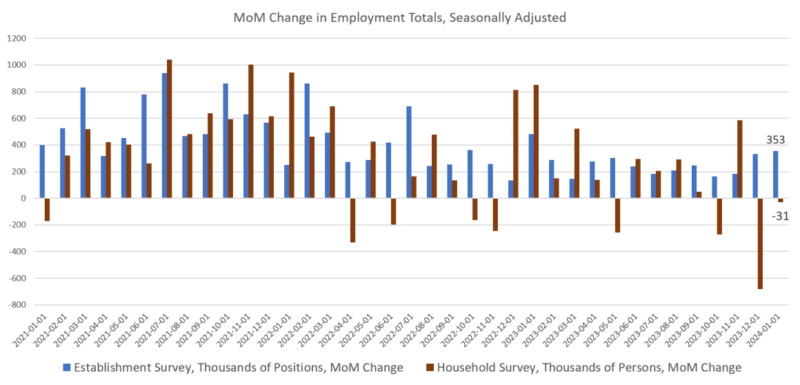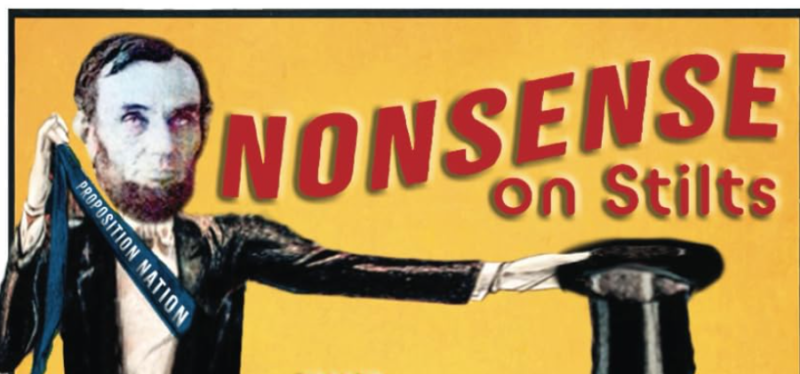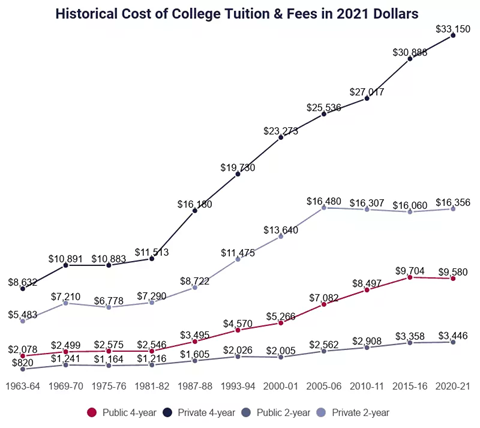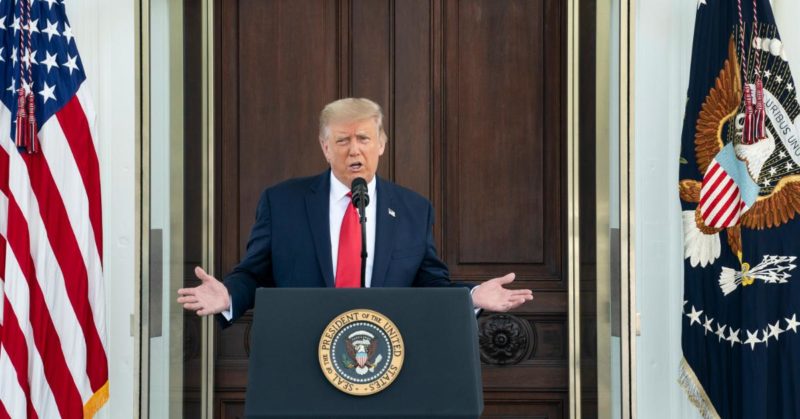Category Archive: 6b.) Mises.org
The Myth of the Unchanging Value of Gold
According to mainstream economics textbooks, one of the primary functions of money is to measure the value of goods and services exchanged on the market. A typical statement of this view is given by Frederic Mishkin in his textbook on money and banking. “[M]oney ... is used to measure value in the economy,” he claims. “We measure the value of goods and services in terms of money, just as we measure weight in terms of pounds and distance in terms of...
Read More »
Read More »
Javier Milei Understands the Road to Serfdom
Each week we encounter mouthwatering policies implemented by the newly elected libertarian president of Argentina Javier Milei. He has the libertarian community in awe.
His arrival to politics with an openly antisystem discourse shook not only the local scene in Argentina but also the rest of the world.
But how? The respective libertarian parties in each country barely get enough votes to even appear on the main grid on election night!
There are...
Read More »
Read More »
Bank Crises and the Interventionist Spiral
Silvergate Bank, Silicon Valley Bank, Signature Bank, and First Republic Bank fell like dominos in March–April 2023. The United States Treasury, Federal Reserve, and Federal Deposit Insurance Corporation (FDIC) intervened in an unprecedented way to stall the domino effect. They waived the FDIC’s $250,000 cap on insured deposits at the failed banks, and the Fed instituted the Bank Term Funding Program to bail out any and all banks that run into...
Read More »
Read More »
Are Free Markets More Dangerous than Regulated Markets?
Is the regulatory choice a tradeoff between safety or “breaking a few eggs” via free markets? The logic of allowing for free and unhampered markets is compelling.
Original Article: Are Free Markets More Dangerous than Regulated Markets?
Read More »
Read More »
Biden’s Middle East Policy Puts Americans at Risk
The Biden administration’s Middle East policies are going to produce the same kind of blowback that led to the 9/11 attacks. The more reckless Biden becomes, the more American lives are placed at risk.
Original Article: Biden's Middle East Policy Puts Americans at Risk
Read More »
Read More »
Biden and Forgotten Federal Financial Tyranny
Under Obama and Biden, the banking sector has been weaponized against industries American leftists don't like. The Obama administration acted as if its regulatory targets did not deserve due process, and the program ravaged far and wide.
Original Article: Biden and Forgotten Federal Financial Tyranny
Read More »
Read More »
If One Wishes to Discredit Capitalism, One Should at Least Understand How It Works
Scott R. Sehon tries to be intellectually honest in his critique of capitalism and his endorsement of socialism, but David Gordon writes that Sehon needs to better know the arguments favoring capitalism.
Original Article: If One Wishes to Discredit Capitalism, One Should at Least Understand How It Works
Read More »
Read More »
New Jobs Report: Full-Time Jobs Disappear as Fewer Americans Find Work
According to a new report from the federal government's Bureau of Labor Statistics last Friday, the US economy added 353,000 jobs for the month of January while the unemployment rate held at 3.7%. CNN news was sure to tell us that this was a "shockingly good jobs report" and it "shows America's economy is booming."
At this point, many of us who follow these numbers have become accustomed to the routine: the BLS reports...
Read More »
Read More »
Fed Wisdom and the Magnificent Seven
In this week's episode, Mark takes a quick look back at Fed wisdom in the year 2000, and then surveys today's stock market—and, in particular, the Magnificent Seven stocks, which represent very narrow leadership of the overall stock market.
Be sure to follow Minor Issues at Mises.org/MinorIssues.
Get your free copy of Dr. Guido Hülsmann's How Inflation Destroys Civilization at Mises.org/IssuesFree.
Read More »
Read More »
The Fed Claims the Banking System is “Sound and Resilient.” The Banks’ Balance Sheets Say Otherwise
The wordsmiths at the Federal Reserve wisely omitted the line about a “sound and resilient” banking system in its statement on January 31. That same day shares of New York Community Bank plunged when the bank announced a loss of thirty-six cents per share when analysts expected earnings of twenty-seven cents a share for the fourth quarter.
Internal or external auditors occasionally comb through individual loans in a bank’s portfolio and make...
Read More »
Read More »
Do We Really Want to Go There? A Michigan Jury Endorses Vicarious Criminal Liability
A Michigan jury this past week convicted Jennifer Crumbley of “involuntary manslaughter” after her then-fifteen-year-old son Ethan shot and killed four of his classmates at Oxford High School in 2021, using a gun that his parents had given to him as a present. Ethan had suffered from depression and other mental health issues before his deadly actions, and hindsight obviously tells us that he should not have been given a gun in the first place, but...
Read More »
Read More »
What Can We Learn from the Latest Pentagon Audit? Both Plenty and Not Much
No one was surprised last November when the Pentagon failed its sixth audit, serving up a sorry record of zero and six. The accomplishment received little mainstream media coverage. Scott Ritter excoriated his former employer (and mine) over the fraud, pointing out that the money wasted and the scope of the United States military activity is so massive, it is nearly incomprehensible to most Americans.
Ritter points out that audits are done by...
Read More »
Read More »
“Nonsense on Stilts”: The Rhetorical Cornerstone of the American Welfare/Warfare State
In a 1922 essay about Lincoln’s Gettysburg Address in his book Prejudices: Third Series H.L. Mencken asked, “Am I the first American to note the fundamental nonsensicality of the Gettysburg Address”? One example of the nonsense of Lincoln’s rhetoric as explained by Mencken is as follows:
“Think of the argument in it. Put it into the cold words of everyday. The doctrine is simply this: that the Union soldiers who died at Gettysburg sacrificed their...
Read More »
Read More »
Responding to James Lindsay’s Critique of “National Divorce”
Bob goes solo to give a point-by-point rebuttal to James Lindsay's recent essay arguing that "national divorce means national suicide." Bob argues that James employs inconsistent claims and ignores the tremendous economic boon to an independent Texas.
James Lindsay's Article "National Divorce is National Suicide": Mises.org/HAP434a
Bob's Book "Common Sense: The Case for an Independent Texas": Mises.org/HAP434b...
Read More »
Read More »
The Dangerous Consequences of the German Historical School
Ludwig von Mises spends a good deal of time attacking the German Historical School of Economics in Human Action and other works. The doctrines of the school are no longer influential, although as the philosopher and economist Birsen Filip notes in her recent book The Early History of Economics in the United States: The Influence of the German Historical School of Economics on Teaching and Theory (Routledge, 2023), things were once different....
Read More »
Read More »
The Double-Edged Sword of School Choice
School Choice has become a hot button political topic, especially for right-wing America. Conservatives, libertarians, and everyone that is to the left of the Democratic Party have grown increasingly more skeptical of the public education system. Between ideological indoctrination, what might be rightfully described as “grooming” into social contagions, and declining educational gains, public education has demonstrated its utter failures.
The...
Read More »
Read More »
Vilfredo Pareto, Pessimistic Follower of Molinari
One prominent person rarely associated by scholars with the Bastiat-Ferrara laissez-faire school was the eminent sociologist and economic theorist, Vilfredo Federico Damaso Pareto (1848-1923). Pareto was born in Paris into a noble Genoan family. His father, the Marchese Raffaelle Pareto, a hydraulic engineer, had fled Italy as a republican and supporter of Mazzini. The senior Pareto returned to Italy in the mid-1850s and gained a high rank in the...
Read More »
Read More »
On Decolonizing Property Rights
One of the most destructive aspects of the “decolonize” movement is its insistence that scientific principles are as subjective as cultural beliefs. Decolonizers argue that the natural sciences—physics, mathematics, chemistry, and biology, along with computer science—should be analyzed from different ethnic and racial perspectives.
For example, students in a field designated as “Afrochemistry” are taught to “implement African American sensibilities...
Read More »
Read More »
Ryan McMaken vs. Libertarian Imperialists
On this episode of Radio Rothbard, Ryan McMaken and Tho Bishop do a recap of Ryan's debate at LibertyCon on the question of national divorce. Tho and Ryan address some of the libertarian arguments against secession, as well as the larger divide between libertarians like David Boaz and Rothbardians on matters of voluntary association.
Discussed on the Show
Ryan's debate — Will a National Divorce Lead to More Individual...
Read More »
Read More »
After Trump, Then What?
The case against Clevinger was open and shut. The only thing missing was something to charge him with.
—Joseph Heller, Catch-22
Austrians call it high time preference. In psychology it’s an area of research called future orientation. Hall of Fame football coach George Allen expressed it as “The future is now.” Almost everyone seems born with it, and a growing number don’t outgrow it.
Today in American politics, it is strongest among one faction in...
Read More »
Read More »































